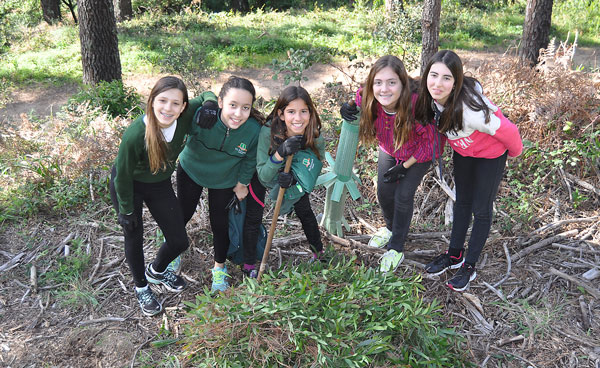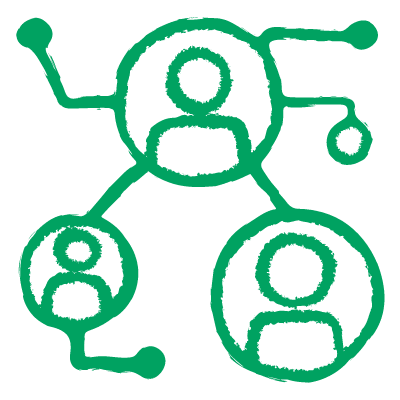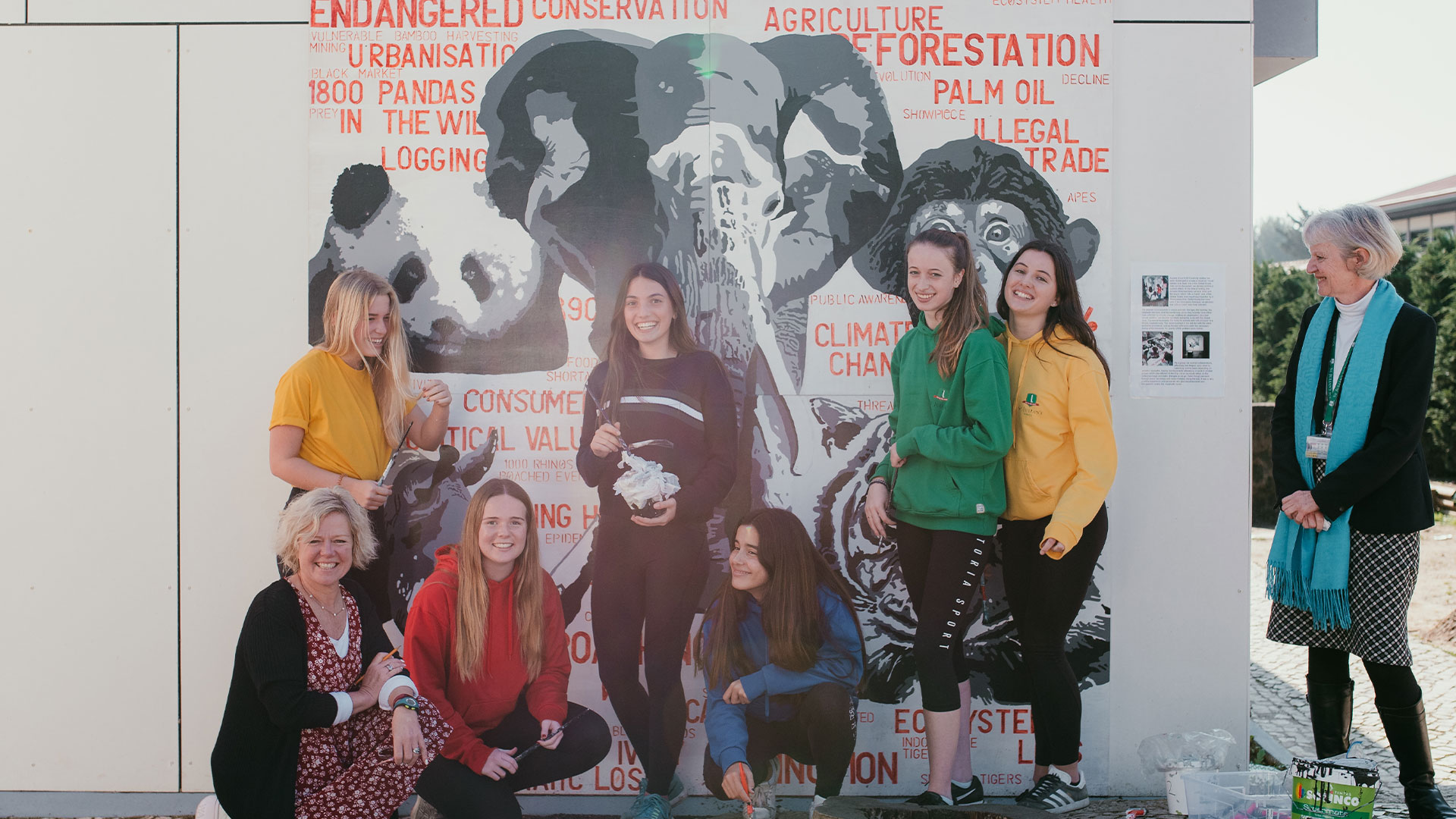Community Service
Community Service and Service Learning describe the integration of service into the school curriculum in such a way that the community benefits and the students learn skills that will help them to develop into global citizens. As a School, we strongly believe in the benefits of volunteering and committing to service, and are committed to fully embedding these experiences into the curriculum.
The curriculum has been designed to holistically embrace the inclusion of service to develop important skills that can make real life links to academic subjects and allow a more balanced lifestyle. The community service program has been developed with careful consideration of the school’s Learning Essentials, the ethos of the International Baccalaureate and the needs of the local community.
Students learn about environmental issues and then have hands-on experience in maintaining and improving our local environment.
In the Primary years, students in both the British and Bilingual sections of the school are introduced to helping others and the environment through projects led by the House team, the Green Team and the Parents’ Association. In the Year 8/ 7º Ano Enrichment program, students learn about environmental issues and then have hands-on experience in maintaining and improving our local environment. In Year 9/ 8º Ano, the students visit a local centre which has evolved to respond to children and young adults with special educational needs. From Year 10/ 9º Ano onwards, students are involved with the Outdoor Education Program and can choose to commit to Premio, the Portuguese Duke of Edinburgh Award. These are excellent opportunities for students to research and then volunteer in areas of community service that interest them.
The community service program is at the core of the IB program in CAS. CAS service has many levels and each student has a different starting point, and therefore different goals and needs, but for many their CAS service include experiences that are profound and life‑changing. Following graduation, students often continue to volunteer with centres where they already have established meaningful links. For students new to volunteering the collaboration between CAS teachers and the Parents’ Association allows students to be informed of the many charities that have a real need in the community and how they can help.
Families often volunteer together which further develops the benefits of volunteering. One of the key aspects of volunteering that is then brought back to school is reflection. Throughout each area of the school involved in service, a common thread is open and honest reflection and this is due to the high-quality relationships between the students, teachers, Parents’ Association and the charities.
Charitable events and service learning opportunities are encouraged and promoted through email and the Lighthouse throughout the school year. This allows families to volunteer together, developing closer bonds, through common interest, commitment and a sense of purpose.
We hope our students develop the skills and knowledge that will help them process why community service is so beneficial. By the end of Year 13, when the students engage in their final CAS interview, we know that our students have developed compassion, well-being and balance and it is clear that they understand and recognise the importance of community service.













